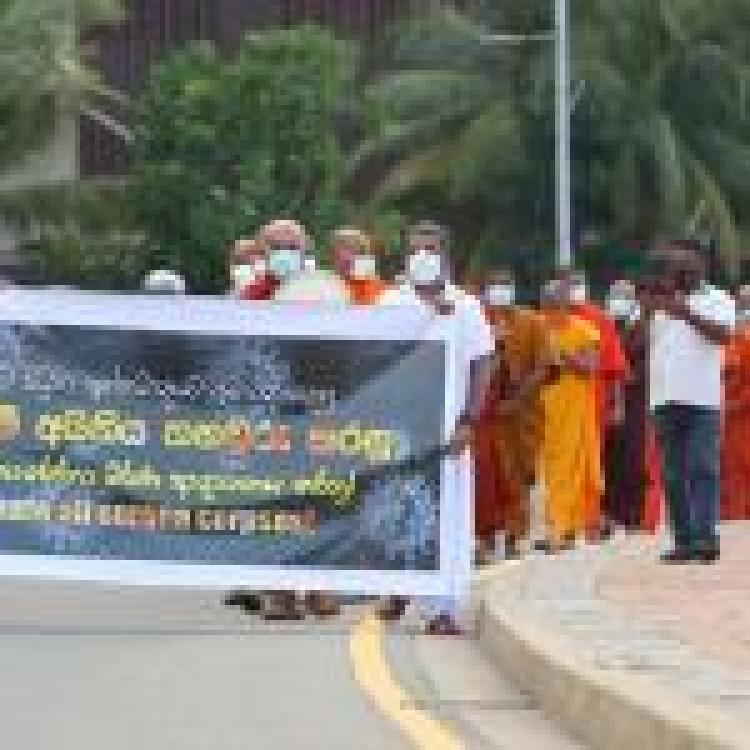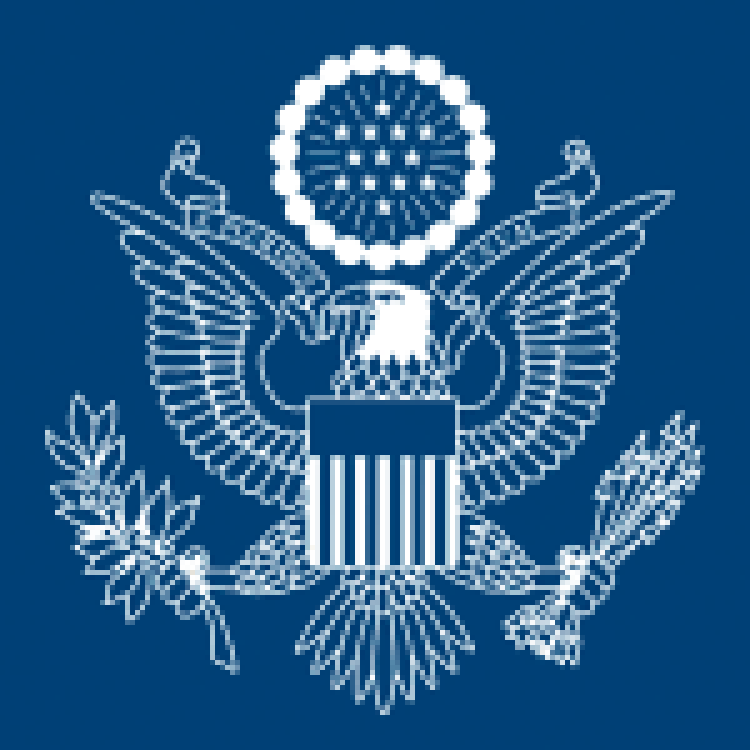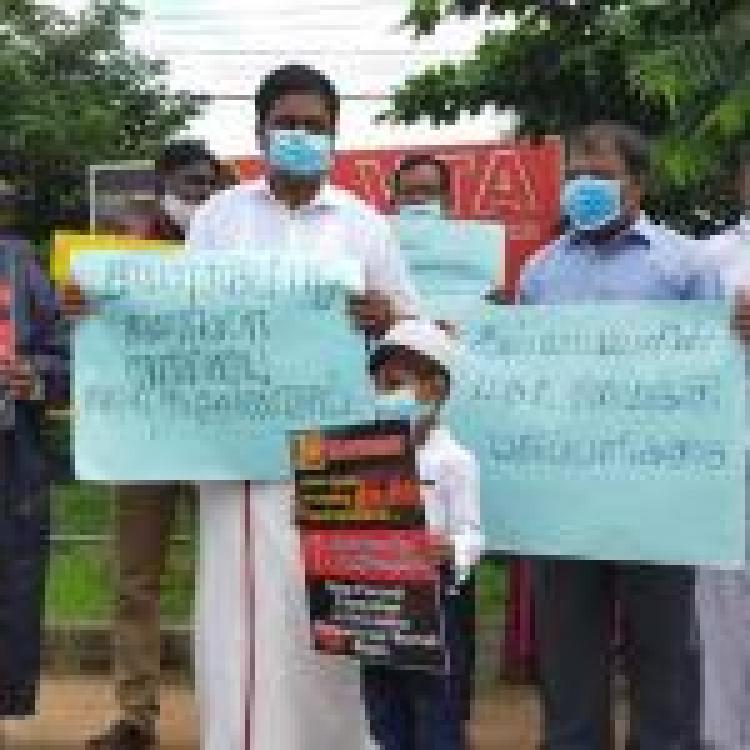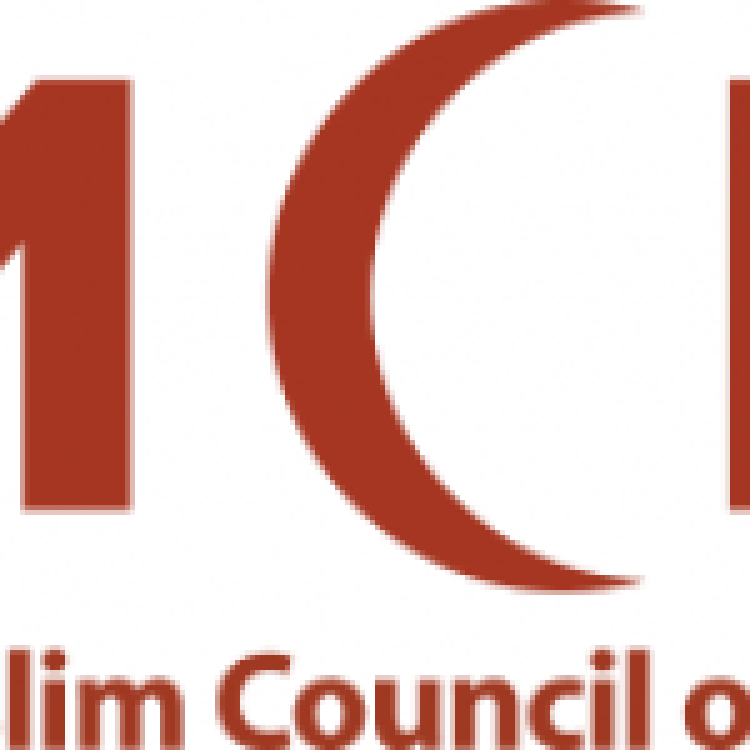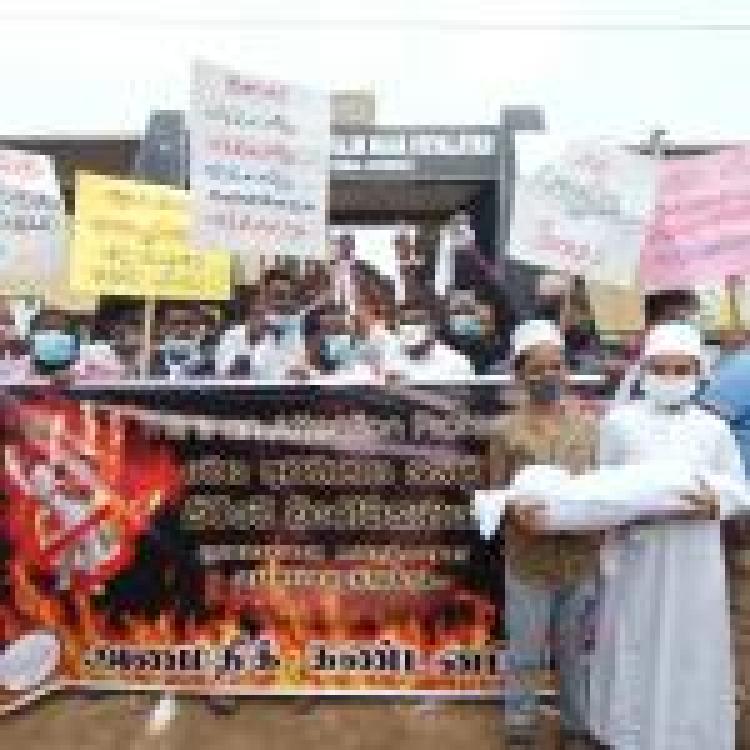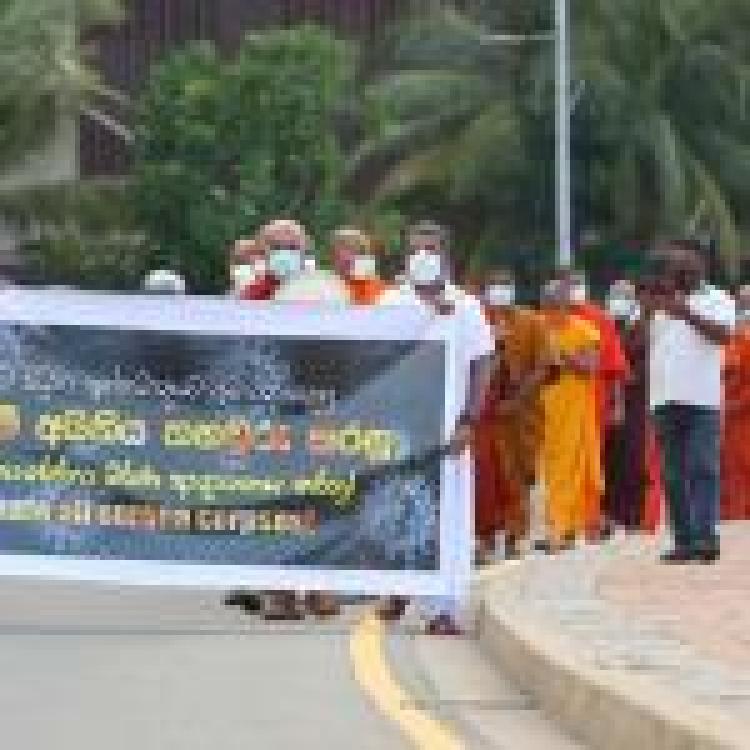![]()
Following claims by Sri Lankan Prime Minister, Mahinda Rajapaksa, that Sri Lanka would repeal its international condemned policy of forced cremations, government minister, Udaya Gammanpila, has confirmed that there will be no changes and has claimed that the final decision will be made by Director General of Health Services Dr Asela Gunawardena.
This statement follows numerous domestic and international campaigns calling for the withdrawal of the draconian policy first ordered on 31 March 2020. It also came in advance of a visit by Pakistan’s Prime Minister Imran Khan later this month. Shreen Saroor, a women’s rights activist and co-founder of the Women’s Action Network, has raised concerns that Khan may “negotiate a deal with the Sri Lankan regime to restore Muslim burial rights while in turn offering Pakistan’s support to Sri Lankan diplomatic efforts to reject the (UN) Human Rights Council resolution".
In January UN Special Rapporteurs Ahmed Shaheed, Fernand de Varennes, Clément Nyaletsossi Voule and Tlaleng Mofokeng issued a joint statement decrying policy noting that was “based on discrimination, aggressive nationalism and ethnocentrism amounting to the persecution of Muslims and other minorities in the country”.
Sri Lanka’s government officials have repeatedly defended the policy maintaining that it was not discriminatory but “based on scientific and health regulations”. This was despite officials from the World Health Organisation, as well as Sri Lanka’s own Medical Association, denying the scientific basis for the decision.
Whilst the policy has protested against by Tamils and Muslims across the North-East, it has also mobilised Sinhala Buddhist nationalists who protested in favour of forced cremations. Banners carried by demonstrators called for the government “not to sacrifice the lives of the entire people of the country for the narrow religious ends of extremists”.
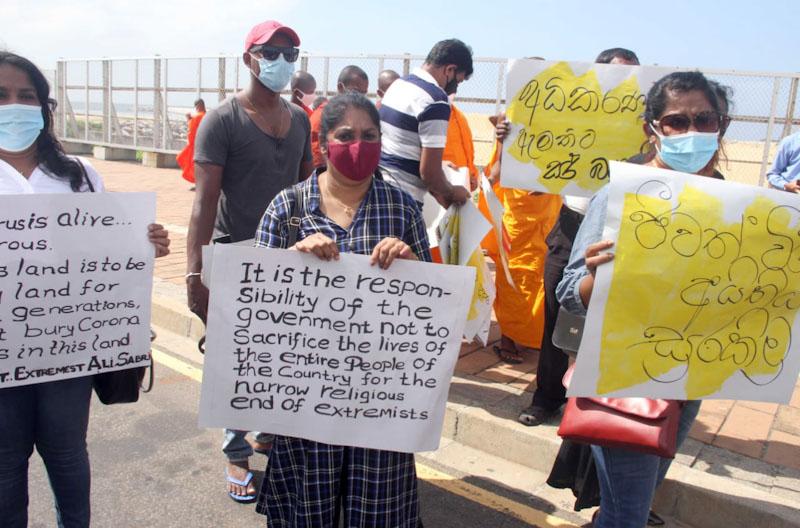
Since the government introduced its policy there have been over 124 deaths due to the coronavirus, an estimated 50 of which have been Muslim and have been forcibly cremated, against the wishes of family members. This includes the case of Shaykh, a 20-day old infant.

